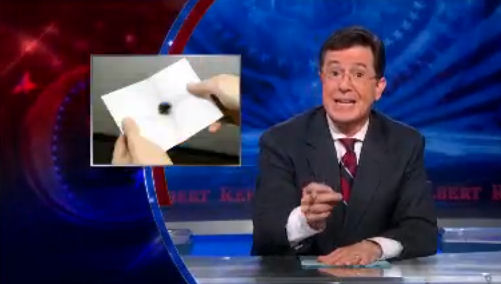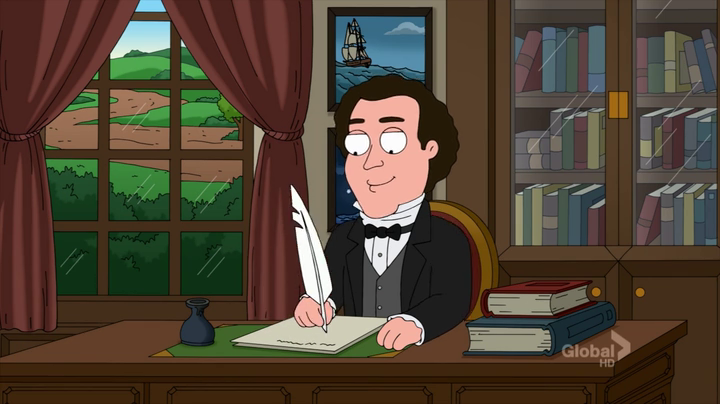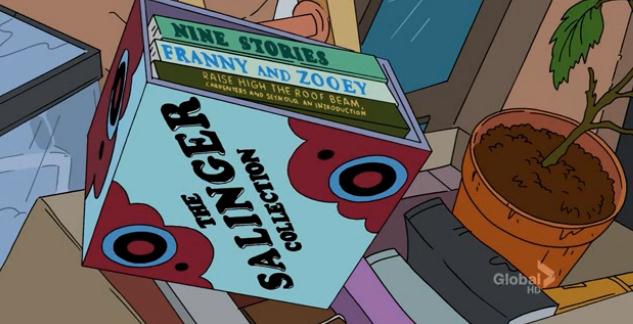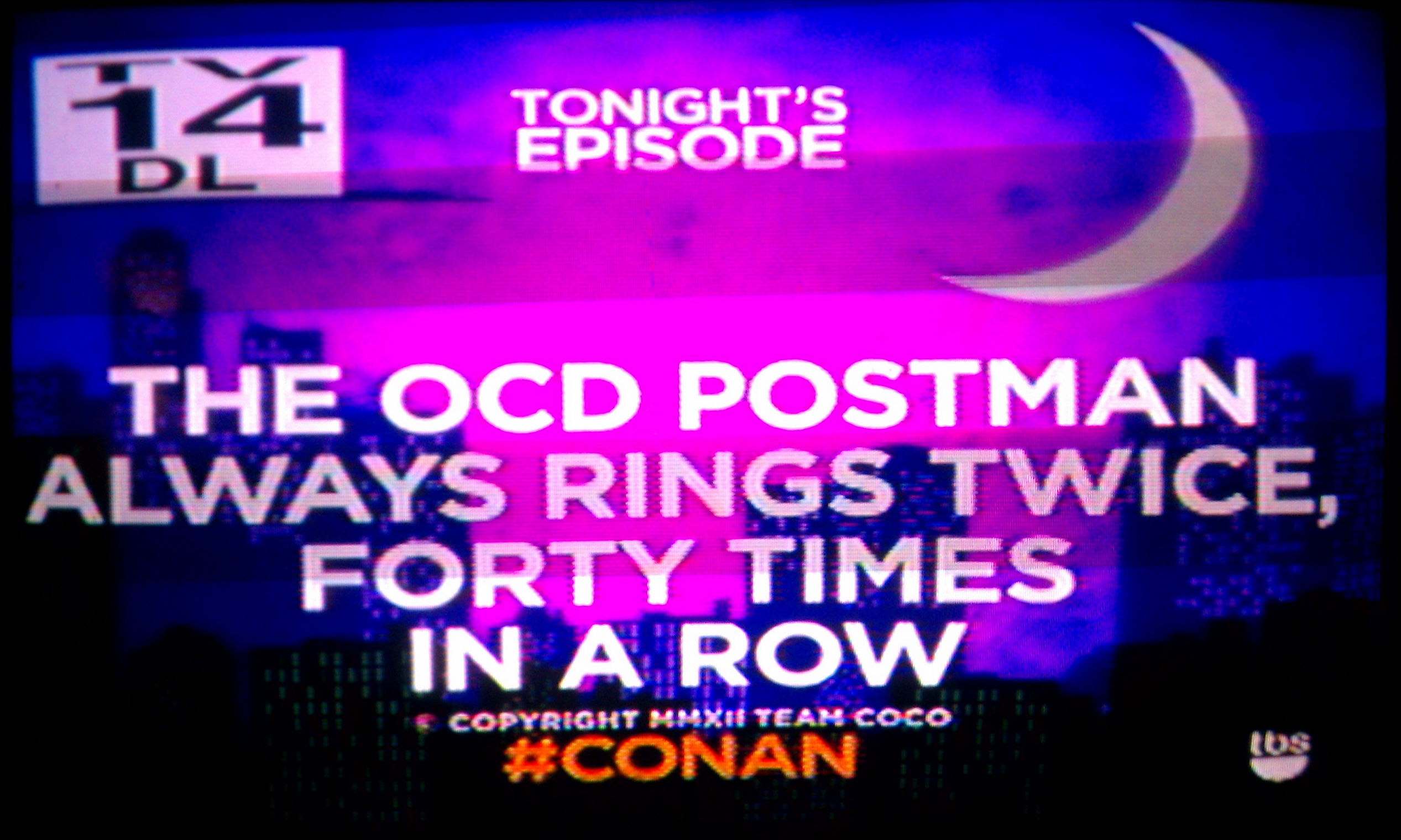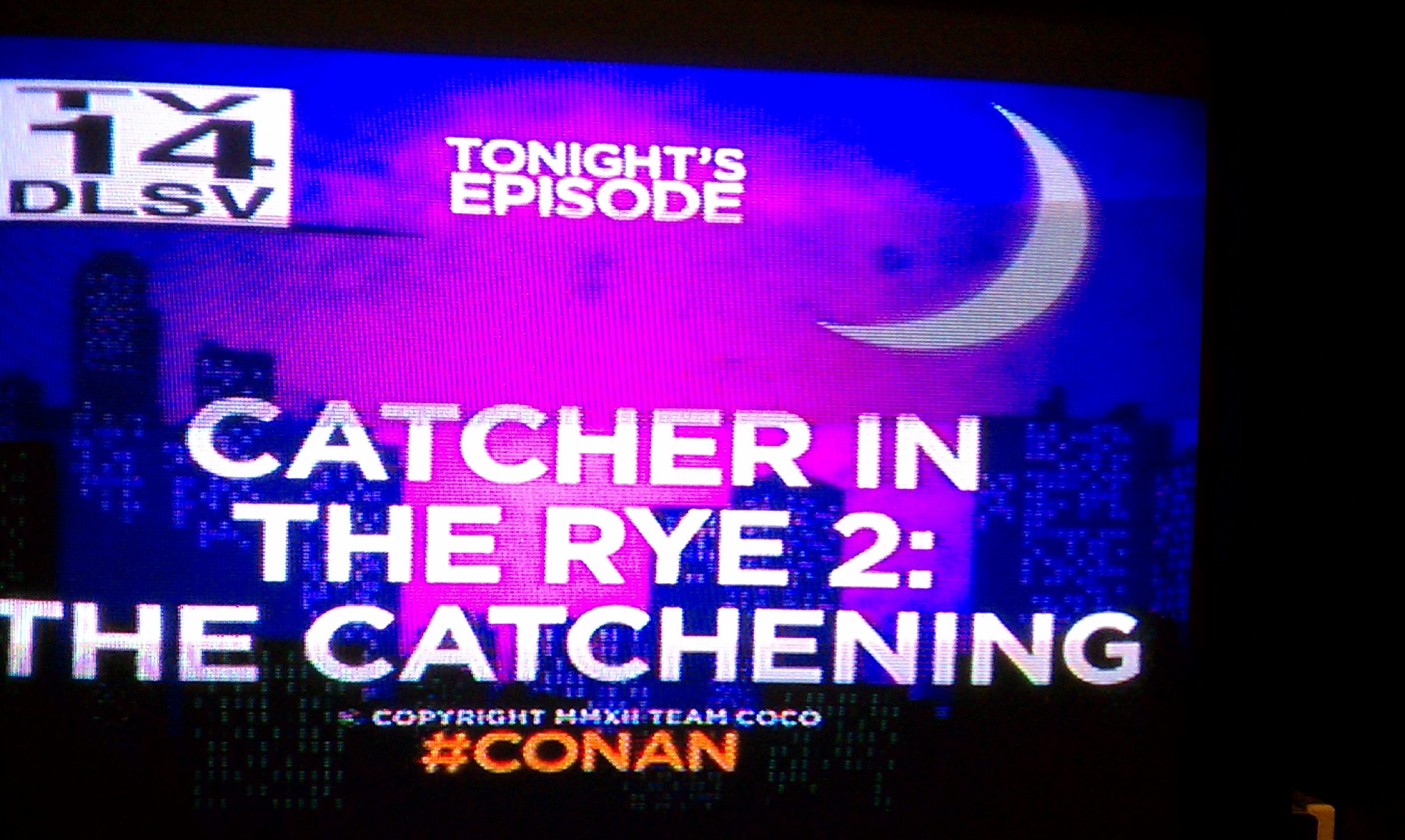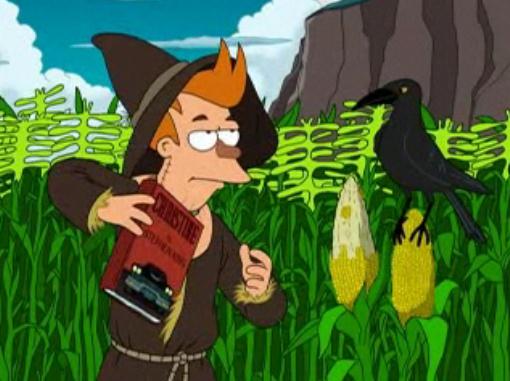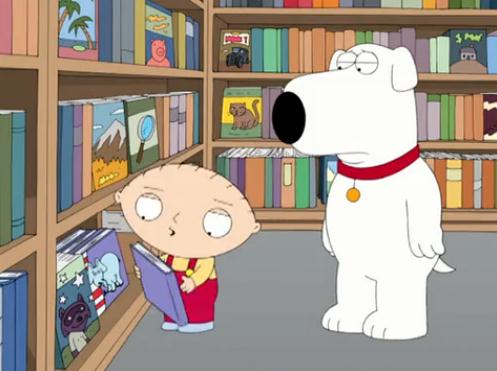(part of my ongoing Unexpected Literary References series) On Monday April 1, 2013, The Colbert Report managed to squeeze in a subtle reference to Shirley Jackson's famous short story "The Lottery" at the very end of the clip below (titled "Health Care Lottery"). What's especially impressive is that he doesn't draw attention to the source material. This is ballsy considering that many people probably wouldn't get the reference (unless of course there was a recent film adaptation or something that I don't know about). This isn't the first time "The Lottery" has made it's way into popular media. Both South Park and The Simpsons have made references in the past.
Category Archives Unexpected Literary References
(part of my ongoing Unexpected Literary References series) Nathaniel Hawthorne makes an appearance in the Season 11, Episode 10 Family Guy titled "Space Cadet." From FamilyGuy.Wikia.com: When Chris presents a poorly written presentation for class in "Space Cadet", he complains of not being Nathaniel Hawthorne. Nathaniel Hawthorne is seen chuckling over ruining ninth grade for everyone as he writes a story. Nathaniel Hawthorne (born Nathaniel Hathorne; July 4, 1804 – May 19, 1864) was an American novelist and short story writer. His works include The House of the Seven Gablesand The Scarlett Letter. Here's the clip:
(part of my ongoing Unexpected Literary References series) It's no secret that Catcher in the Rye is J.D Salinger's most famous work. So, I suppose The Simpsons doesn't so much insult Salinger as it does simply remind people that Salinger was important at one time, for one book. In this, Season 22 Episode 16 episode called "A Midsummer’s Nice Dream" (the title itself a literary reference) Marge discovers "A box set of all of J.D Salinger's novels except Catcher in the Rye" among a pile of garbage that once belonged to the town hoarder, implying that only a crazy hoarder would actually keep copies of these "other" books.
(part of my ongoing Unexpected Literary References series) The title from this September 25th, 2012 episode is a take on the James M. Cain novel, The Postman Always Rings Twice. This makes two book references in a row. Not only is this not the first time Conan has referenced a literary work in his episode titles, it's not even the first time he's referenced The Postman Always Rings Twice. Someone at the Conan O'Brien show must have a bit of a Cain boner.
(part of my ongoing Unexpected Literary References series) The title from this September 24th, 2012 episode is obviously a take on Catcher in the Rye. This isn't the first time Conan has leveraged a book title for a show title.
(part of my ongoing Unexpected Literary References series) Stephen King work makes as many cartoon appearances it seems as Stephen King books do bookshelves. This reference, from the Wizard of Oz spoof segment of the Futurama episode Anthology of Interest II (Season 3, episode 21) occurs when Fry, portraying the Scarecrow, attempts to scare a crow by reading a section from Stephen King's novel, Christine. Fry: OK, crow, prepare to be scared.
(part of my ongoing Unexpected Literary References series) In the Family Guy episode titled "Love Blactually" (Season 7, Episode 1, Aired Sep 28, 2008) Stewie picks up a copy of Horton Hears Domestic Violence in the Next Apartment and Doesn't Call 911, an obvious riff of Dr. Suess's Horton Hears a Who. Well, the title is a riff, anyway; Horton Hears a Who, content-wise, contains slightly less wife-beating. This isn't the first time a Seth McFarlane cartoon has referenced Dr. Suess.

